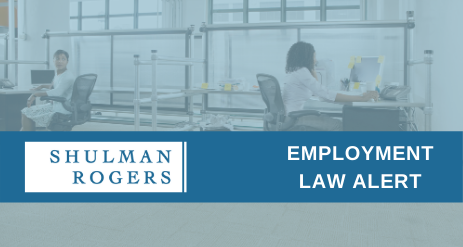
On November 19, 2020, the Office of Federal Contract Compliance Programs (OFCCP) published the above-titled final rule to establish clear parameters for OFCCP resolution procedures and enhance the efficient enforcement of equal employment opportunity laws. The OFCCP’s goal is to increase the number of contractors it can evaluate and improve its allocation of agency resources toward the resolution of stronger cases.
To achieve this, the final rule introduces procedures that will increase the transparency of OFCCP’s operations so that contractors and OFCCP can resolve potential violations through a clear, mutual understanding of the issues. The final rule improves the OFCCP’s efficiency by allowing it to pursue resolution of stronger cases early in the compliance evaluation process through the new Predetermination Notice (PDN) procedures and early resolution conciliation option. Importantly, the final rule establishes consistent parameters for findings and preliminary findings of discrimination, and provides contractors with more certainty as to OFCCP’s operative standards for compliance evaluations and the agency’s issuance of pre-enforcement notices.
OFCCP will utilize the following resolution procedures:
Prior to initiating these resolution procedures, the strict evidentiary standards identified in the final rule must be satisfied. In order to issue a PDN in a disparate impact case, OFCCP must:
Similarly, to issue a PDN in a disparate treatment case, OFCCP must:
However, in disparate treatment cases (only), three limited exceptions to the aforementioned evidentiary requirements will apply:
In summary, the final rule clarifies the procedures and standards the OFCCP will use in evaluating cases and issuing resolution notices, but does not alter existing contractor compliance requirements.
The final rule itself discusses the above in much greater detail. Contractors with questions about the rule or this Alert should contact Shulman Rogers Employment Law attorneys to discuss this topic further.
The contents of this Alert are for informational purposes only and do not constitute legal advice. If you have any questions about this Alert, please contact the Shulman Rogers attorney with whom you regularly work or a member of the Shulman Rogers Employment and Labor Law Group.
Stay up to date with all the latest news and events.